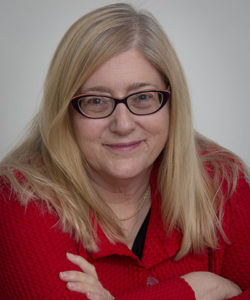In Praise of Older Romance
One of the reasons I write romances with protagonists in their sixties is to debunk the myth that the older we grow the less alive we are. I understand this presumption because when I was in my twenties—back when I knew everything with a certainty real life has since erased—I was sure that people in their sixties had already lived their best years and were headed downhill. Like, they’d raised their families and what did they have left?
I blush at my complete ignorance of the fact that our sixties are some of the most vibrant years a human can live. How do I know that? Because I’m in the middle of them right now. Many of my friends are too, and we’re all living our lives completely and fully in these older bodies of ours. My younger self had no concept of the wonder and richness decades of experiences and learning, loving, and being loved would add to our later years.
She also had no idea that romance is alive and well in our sixties and beyond. Why would it not be? We’re the same people we’ve always been. Yes, maybe our sex drive is more tempered, but being turned on feels the same as it always did—fun. Exciting. Definitely still happening. So why don’t younger people understand that?
I think this gap is due to multiple factors, among them cultural misunderstandings perpetuated by the media. The bulk of movies and shows portray romantic interest and sexual intimacy as the domain of young people, who then struggle to imagine emotional and physical connection beyond their own immediate experience. Hence the pervasive myth that passion dies with age, rather than transforms and deepens.
Being younger has physical perks, yes. But it also means less experience which can lead to a limited perspective. Younger people often equate romance with physical passion and dramatic intensity, bypassing the underlying truth that intimacy becomes more nuanced, not less powerful, with time.
In addition, sometimes younger individuals project their own fears of aging and loss of love connection onto older relationships. When this is coupled with the human tendency to dismiss what we don’t understand—in this case, the nuanced intimacy of long-term relationships—plus a shocking lack of realistic representation, the ageism bias becomes even more entrenched.
Adding to this problem, the beauty industry relentlessly peddles ways to avoid aging—or at least looking like you’re not aging—implying if not actually stating that those later years are a shrinking, not the culmination of all our years of learning and becoming our best selves.
I don’t blame younger people. I remember my younger self much too well for that. Bogged down in figuring life out, I just never took seriously that others had gone before me and that I could learn from what they discovered along the way.
Generation Truth
Younger me was not alone in feeling disconnected with older generational truths. Written portrayals of sexual and emotional vitality in later life are rare. The few vignettes that do exist typically fall short of capturing the depth and complexity of mature love in all its emotional and physical dimensions. Is this absence due to the age of screenwriters and authors—another manifestation of ageism—or because the preceding generation, often called ‘The Silent Generation,’ remained reluctant to share their experiences, leaving it to Boomers as we reach our later years? Probably both and more.
Whatever the reason, the irony is that relationships in later life often possess a richness, understanding, and intentionality that younger relationships are still learning to cultivate and desperately want. They don’t realize and aren’t told that passion doesn’t disappear—it simply becomes more sophisticated, more grounded, more satisfying.
The sheer number of younger folks who watch an older couple holding hands or kissing and coo adoringly like “isn’t that so cuuuuute” persuades me that they don’t recognize what’s going on. It’s cute only in the same way couples holding hands in their teens, twenties, and beyond are cute— because two people who love each other are always going to be the sweetest thing we’re privileged to witness in this tired old world.
Many younger adults don’t understand that when a couple in their sixties makes out on a park bench, that’s not a different thing than the couple in their thirties lip-melding on the next bench over. More than that, they don’t comprehend that we’re exactly the same people in our sixties as in our earlier days—same hearts, same personalities, same intensity of love. The only thing that is different, really, is the way our bodies have changed. More wrinkles. Maybe more pounds, less muscle mass. More gray hair. Not as conventionally attractive, tight, or socially promoted. But sixty-plus bodies still work. They still get turned on. They still enjoy the intimacy of cuddling and kissing and sex. Definitely.
If I could send one message to my younger self, I would tell her to take hope. If she just keeps loving and trying and learning in relationship, when she’s in her sixties, those later years will be a sweet reward for all her searching. Not the end of life as she knows it so much as the beginning of the life she was always trying to build.
Older Romance
We need to send this message far and wide. Write romances about our later life realities to shine a beacon for these younger generations. Not because we need their recognition but because we are living their someday. They need to know just what wonders still await them in later life. All the friendship. All the passion. All the love, with a deep, sweet, and tested integrity of the years to hold them in safety. Because we’re the ones who know these things, we can give courage and hope to those who do not.
So hang in there, younger people. It’s going to be okay. It really, really is. Because romance and relationship, and yes, physical intimacy are very much alive and well in later years. You’ll see.
Leslie’s books:



2 Responses
I love it ! This is great’, I feel like I’m still me no matter what age I am.
Thanks Shari! Yes, we are still ourselves — only even better.